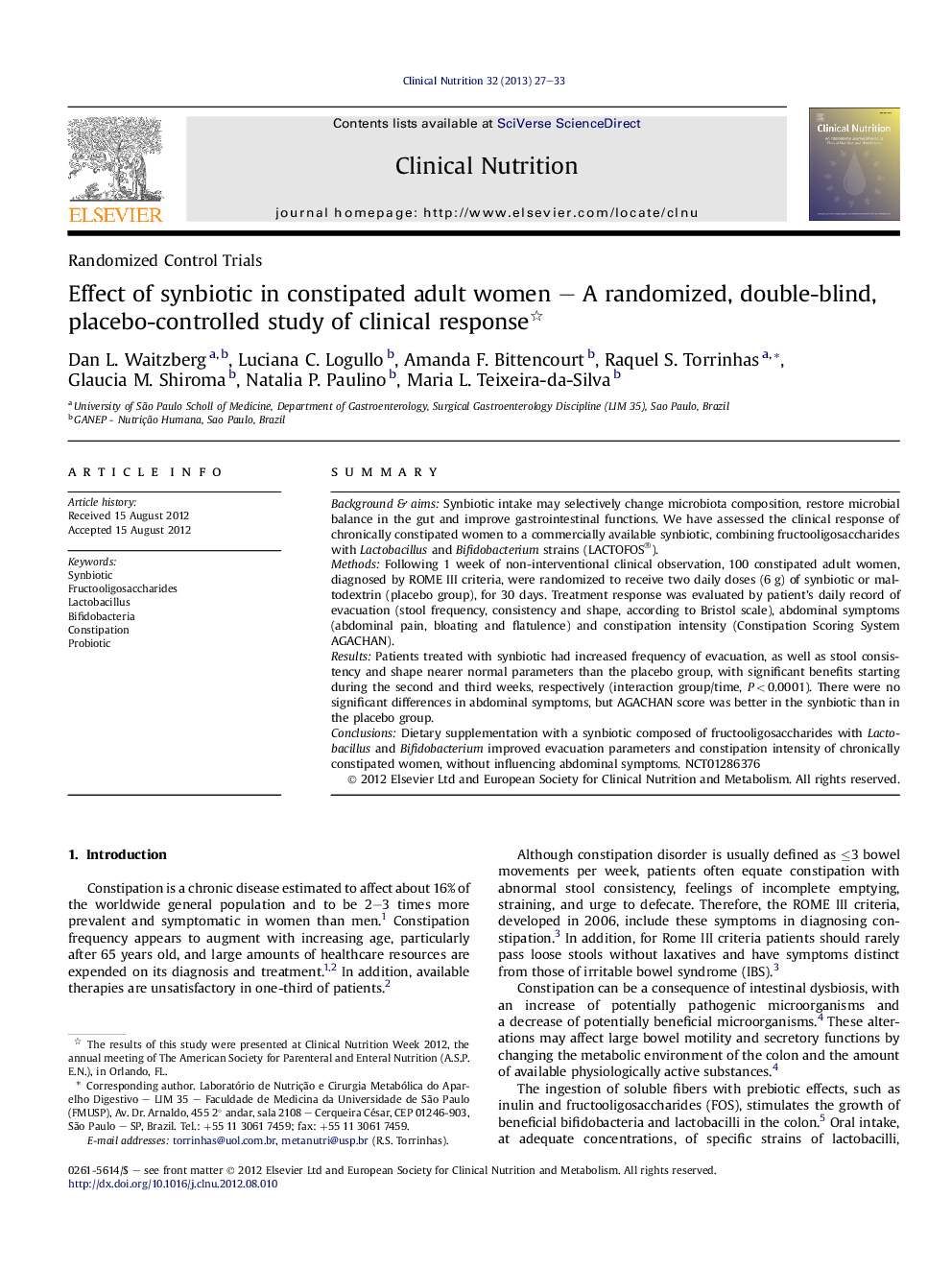| Article ID | Journal | Published Year | Pages | File Type |
|---|---|---|---|---|
| 2687026 | Clinical Nutrition | 2013 | 7 Pages |
SummaryBackground & aimsSynbiotic intake may selectively change microbiota composition, restore microbial balance in the gut and improve gastrointestinal functions. We have assessed the clinical response of chronically constipated women to a commercially available synbiotic, combining fructooligosaccharides with Lactobacillus and Bifidobacterium strains (LACTOFOS®).MethodsFollowing 1 week of non-interventional clinical observation, 100 constipated adult women, diagnosed by ROME III criteria, were randomized to receive two daily doses (6 g) of synbiotic or maltodextrin (placebo group), for 30 days. Treatment response was evaluated by patient’s daily record of evacuation (stool frequency, consistency and shape, according to Bristol scale), abdominal symptoms (abdominal pain, bloating and flatulence) and constipation intensity (Constipation Scoring System AGACHAN).ResultsPatients treated with synbiotic had increased frequency of evacuation, as well as stool consistency and shape nearer normal parameters than the placebo group, with significant benefits starting during the second and third weeks, respectively (interaction group/time, P < 0.0001). There were no significant differences in abdominal symptoms, but AGACHAN score was better in the synbiotic than in the placebo group.ConclusionsDietary supplementation with a synbiotic composed of fructooligosaccharides with Lactobacillus and Bifidobacterium improved evacuation parameters and constipation intensity of chronically constipated women, without influencing abdominal symptoms. NCT01286376
